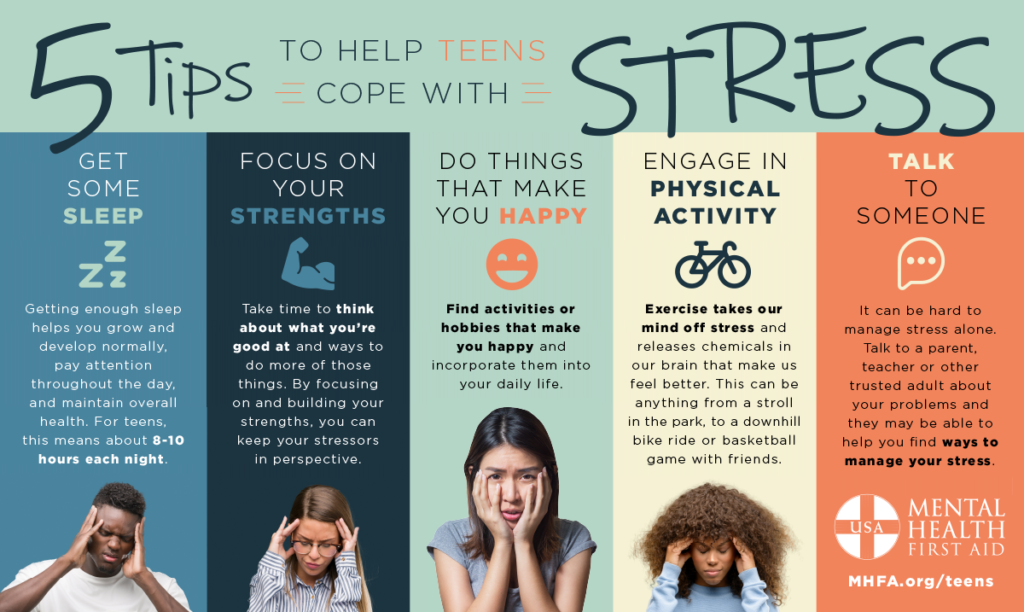Five Tips to Help Teens Cope with Stress [downloadable]
 High school teens spend most of their time attending classes, participating in extracurricular activities and doing homework. There is constant pressure to do everything and do it well to prepare for a successful career or higher education after high school. This can cause a lot of stress.
High school teens spend most of their time attending classes, participating in extracurricular activities and doing homework. There is constant pressure to do everything and do it well to prepare for a successful career or higher education after high school. This can cause a lot of stress.
Use these tips to take a break from the barrage of constant communication and manage your stress in a healthy way. Read more ›


 Studies about the Ten Adverse Childhood Experiences (ACEs) have shown that most people have experienced one of these traumas in childhood, such as being abused, having a parent who is incarcerated, experiencing homelessness, among others. The trauma one experiences in childhood can affect adult mental and physical health in later years, especially if a person has multiple ACEs.
Studies about the Ten Adverse Childhood Experiences (ACEs) have shown that most people have experienced one of these traumas in childhood, such as being abused, having a parent who is incarcerated, experiencing homelessness, among others. The trauma one experiences in childhood can affect adult mental and physical health in later years, especially if a person has multiple ACEs. 
 Anxiety Canada
Anxiety Canada
 Teenagers who don’t get enough sleep may be at an increased risk of engaging in unsafe sexual behaviors, such as not using condoms or having sex under the influence of alcohol or drugs, according to new research published by the American Psychological Association.
Teenagers who don’t get enough sleep may be at an increased risk of engaging in unsafe sexual behaviors, such as not using condoms or having sex under the influence of alcohol or drugs, according to new research published by the American Psychological Association. 
 The Netflix show “13 Reasons Why” was associated with a 28.9% increase in suicide rates among U.S. youth ages 10-17 in the month (April 2017) following the show’s release, after accounting for ongoing trends in suicide rates, according to a study published in Journal of the American Academy of Child and Adolescent Psychiatry. The findings highlight the necessity of using best practices when portraying suicide in popular entertainment and in the media. The study was conducted by researchers at several universities, hospitals, and the
The Netflix show “13 Reasons Why” was associated with a 28.9% increase in suicide rates among U.S. youth ages 10-17 in the month (April 2017) following the show’s release, after accounting for ongoing trends in suicide rates, according to a study published in Journal of the American Academy of Child and Adolescent Psychiatry. The findings highlight the necessity of using best practices when portraying suicide in popular entertainment and in the media. The study was conducted by researchers at several universities, hospitals, and the 

 Educators are trained to provide students with the help they need to thrive both academically and socially. It’s important, however, to recognize that our experiences may be, and most likely are, very different from what our students experience today.
Educators are trained to provide students with the help they need to thrive both academically and socially. It’s important, however, to recognize that our experiences may be, and most likely are, very different from what our students experience today. 
 Animals have evolved to adapt to their environment in many ways, but one thing hasn’t changed: They all need sleep to survive, says
Animals have evolved to adapt to their environment in many ways, but one thing hasn’t changed: They all need sleep to survive, says 

